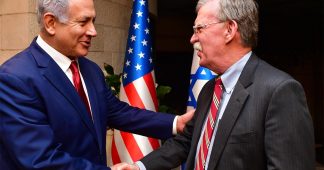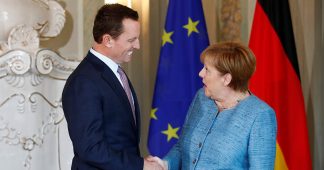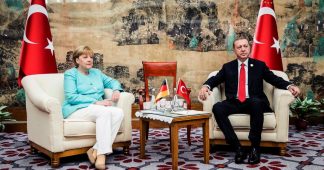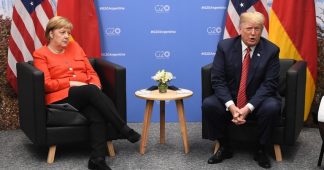When it comes to fostering relations between Germany and the United States, the Atlantik-Brücke in Berlin is the most important player. For almost 70 years, the non-profit organization has worked, according to its statutes, to “deepen the collaboration between Germany, Europe and America on all levels.”
The American ambassador usually plays a key role in this process. When a new chief U.S. diplomat arrives in the German capital, the Atlantik-Brücke organizes a big dinner, an event that has become a regular tradition.
When U.S. Ambassador Richard Grenell took up his posting in Germany last year, there were plans to welcome him according to that custom, but Grenell didn’t want to. He wasn’t interested.
The ambassador also turned down the invitation to speak at a meeting of the organization’s members in late June of last year. Nor did Grenell want to hold a talk at the ensuing barbecue, where he was described as the “guest of honor.” He instead gave two students an interview that mostly centered on his dog and its importance to the ambassador’s life. Then he disappeared again.
Since then, there has been radio silence between Donald Trump’s representative in Berlin and the most important German-American lobby group. The only thing that exceeds Grenell’s demonstrative disinterest in the Atlantik-Brücke, it seems, is his pretension to power. When it comes to who should lead the group, the U.S. ambassador still wants to have his say.











